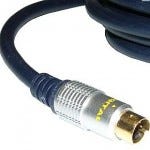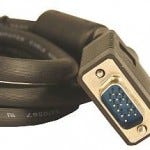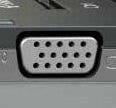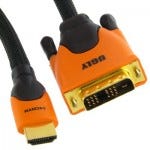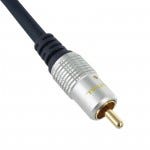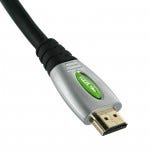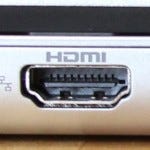Isn't it great how we can now watch “Catch Up” TV whenever we want? Are you a bit tired of watching shows on your computer or laptop? It’s really simple to connect your laptop or computer to your television, so you can watch your favourite download on a bigger screen.
Depending on the model and age of both your computer and television, you can use the following cables.
TIP: Make sure both your computer and television are turned OFF when you connect the cables, then turn on. Following your television manual, select the appropriate input on your television. Your laptop manual will also help you select the correct output and cable required for it's needs.
S-Video – (Super Video). Most computers with TV-out functions can use an S-Video cable to connect to either analogue or digital TVs.
VGA – (Video Graphics Array). Most computers have a VGA output. Secure one end to your computer, and the other to the VGA input connection on your TV, and you’re done. Easy.
DVI – (Digital Video Interface) to HDMI. Widely available on most computers, this method is easy to connect between devices.
Because DVI delivers the video signal, you will also need an RCA cable to deliver the audio signal.
HDMI – (High Definition Multimedia Interface). All new TVs have HDMI input these days, and if you have a new’ish computer, you should have an HDMI port. Giving a High Definition signal, this method only requires one cable, as both video and audio travel through an HDMI cable.
Whichever cable you use, you will need to adjust your laptop’s display settings. Ensure your TV’s video source is matched to the computer. Typically this will be labelled TV/Video or Input. Your TV should then detect your computer.
NOTE: If you find you are not receiving a signal, you should always refer back to your laptop's user guide. As each laptop and television is different, settings may vary.
If you would like advice about your own set up, please feel free to speak to one of our Selby Techs on 1800 69 2225



